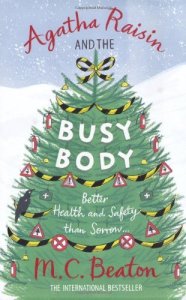Over the past few months I guess I maybe haven’t read as much as I usually would. I’m not sure if that was just being very busy doing other things, or a bit of reading-fatigue.
I do think I felt less motivated to read as my head was so full of ‘to-dos’ and, as you may have gathered from my previous post on blogging principles it had started to feel a bit like a chore. Participants of Riverside Readers will also recognise that the selection below are almost exclusively book group choices. When you’re on a slow-reading run, reading a monthly book group choice can mean you don’t get to read much else but thankfully our members made some good choices.
Favourites;
 |
 |
 |
Wide Sargasso Sea was my choice for Riverside Readers, a dark and moving tale which imagines the background and once vibrant personality of Antoinette Cosway a character Rhys plucks from Jane Eyre. Rhys’ sparing prose and darkly vivid descriptions of post-colonial Jamaica kept me spellbound. One that I would like to re-read.
Erin Morgenstern’s The Night Circus will always bring me fond memories, as I was reading it during my holiday to Prague where I became engaged to be married. It was such a delight to read about the magical world of the circus and it’s also a romantic story on many levels. Unusually for a book I’m enjoying, I found myself wanting to read it slowly so that I could savour it. One of the things that I loved was how the circus popped up all around the world (including Prague) so I could enjoy the descriptions of all the places that I have been. I also loved the imaginative characters.
Sweet Tooth is the last book I put down. A certain Savidge Reads gave me a copy about a month ago – we are both big fans of McEwan. I was a little uncertain about how much I would enjoy it as his last book Solar
(review here) was was well written and topical but I wasn’t blown away with it as I was with other novels like Atonement or Enduring Love. In the end, it was that perfect combination of being both enjoyable to read and clever too. I also enjoyed reading from the point of view of Serena and the secret service plot-line although the storyline turned out a little differently than I thought it might – in a good way.
Worth checking out;
 |
 |
 |
 |
 |
 |
I also enjoyed Charlotte Rogan’s debut The Lifeboat which uses the plot device of a stranded lifeboat to examine human behaviour in a claustrophobic and life-threatening situation. For me it read like a very well written television series – it was gripping but ultimately accounts of human behaviour under pressure such as Golding’s Lord of the Flies
or Shute’s On The Beach
(review here) disturbed me much more deeply.
God’s Own Country was excellent and also very dark. In the wild setting of the North Yorkshire countryside we meet local Sam Marsdyke who strikes up an unlikely friendship with a young girl who has just moved to the area with her family. Raisin keeps the reader in an ambiguous haze as to Sam’s mindset – is he just a naive country bumpkin or are his motives more sinister?
The House of Sleep is the first novel that I’ve read by Jonathan Coe and one that I very much enjoyed. Featuring an insomniac and a narcoleptic who have a tormented relationship as well as a slightly evil doctor who studies sleeping habits it is an original and involving story. I found the narrative at the start of the book which jumps between different time periods a little confusing, but the way that the plot develops towards the end is very satisfying.
Fifty Shades of Grey. Well a friend gave me a copy of this though I’m not ashamed to admit that I was intrigued to read it. Long story short – a bit racy (oh I sound like a maiden aunt don’t I?!) but not that racy in the scheme of things (you’re wondering what else I’ve been reading now…). Not a literary feat, but not as terrible as I had been led to expect. Am I intrigued to find out what’s next for Christian and Ana…? Erm… kinda. Will I get prioritise reading Darker
and Freed
… probably not.
The Rough Guide to Weddings. The wonderful Claire (of Paperback Reader) who comes along to Riverside Readers book group with me, and is going through her own big life-stage moment doing her new house up, gave me this one. I’m not going to lie – I at first thought “Ooh that’s absolutely lovely but I don’t need this, I am not after all BRIDEZILLA!”. Well you know what. I do need it and it is great. I started reading it on the tube home and I’ve read it cover to cover and referred back to it at least ten times already. It is also the most un-bridezilla wedding book as it is very practical and encourages you to think carefully about how nuts you want to go. Or maybe it is a bit bridezilla but I just can’t tell now because I’ve already transformed!
Patrick Gale’s A Perfectly Good Manis one of those that I really enjoyed reading at the time but now can’t really remember much about except that I enjoyed it. I remember it being quite clever and prompting a good book group discussion but main threads… gone!
The rest;
 |
 |
 |
Jasper Kent’s Twelve was Sakura’s choice for book group. I was really quite excited about this as the synopsis sounded thrilling – a vampire novel set in the Napoleonic wars in Russia. I was expecting a romp. It was a bit long and drawn out and not quite romp-ish enough. The main character was also really annoying and the female characters were totally unexciting. Overall quite entertaining but I wouldn’t read the next one unless I was on holiday, it was on the hotel bookshelf and I’d run out of books.
The Terrible Privacy Of Maxwell Sim by Jonathan Coe was quite good but paled in comparison to The House of Sleep as mentioned above. It follows a some poor bloke whose life is falling apart as he goes on a mission to sell a prototype toothbrush to the furthest corners of the UK which involved going a long way out into the middle of nowhere and going slightly batty talking to his Sat Nav. Nice Novel Insights was thinking ‘poor old Maxwell Sim’ and nasty Novel Insights was thinking ‘oh sort it out!’
The Curfew (Vintage Contemporaries), by Jesse Ball was the choice of one of our lovely book group members Armen. I look forward to Armen’s choices because he always picks something I wouldn’t have heard of and often from a far-off land. This one just didn’t do it for me though. Maybe it was just a bit ‘too Kafka’ for me and you know I don’t always like that…
I hope you enjoyed that whistle-stop tour of the books I’ve been reading and maybe saw one or two you are interested in.
What books have you read in the last six months that really stood out as favourites?



















